With summer coming to a close and the new school year just around the corner, parents everywhere often struggle with making the big transition from long, relaxing summer days to hectic, rushed school days.
Many of the parents I work with say that either getting out the door in the morning or putting the kids to bed at night is their most stressful time. Whether it’s due to dawdling or outward defiance, it’s no wonder parents feel at a loss for what to do!
One of the best tools for managing those morning and evening struggles is establishing a ROUTINE. Although we may think that our kids “just know” what to do, it’s important we refrain from assuming. Making agreements ahead of time, in the form of a formalized routine chart, is key!

Getting started is simpler than you may think. Here are 5 steps to help your mornings/evenings move from chaotic to calm:
1.) Respectfully define the “problem”– The key to a smooth morning or evening is having everyone involved in the plan. So, as a first step, bring everyone together and define the “problem.”
For example, “I appreciate you taking the time to chat. We have a problem that I/we could really use your help with. Mornings (or evenings) have been really hectic. I’ve been yelling a lot and I’m sure that’s not fun for you. It’s definitely not fun for me. I/we could really use your cooperation in coming up with a solution to this problem. You always have great ideas!”
(If you haven’t been yelling, but just want to introduce the idea of a routine: “Hey, I have an idea of something that will help make our mornings/evenings super easy and could really use your help.”)
2.) Establish what tasks need to be completed and in what order – After defining the problem (or introducing the idea), involve the kids in brainstorming a list of all the things that need to get done in order to get out the door in the morning or to bed in the evening.
For example, “Let’s make a list of all the things that we need to do in order to get out the door in the morning and on time. What are your ideas?” Write (or have your child write) down all ideas; even those that seem silly. Remember, it’s about brainstorming and allowing everyone to feel involved in the process. Every idea is welcomed.
(Examples include: get dressed, make bed, eat breakfast, brush teeth, use restroom etc)
For younger kids, try taking pictures of your child doing each of their tasks – the visual is extremely helpful for them! (Be sure to get the pictures developed so they can be put on a poster board, hung on a clothesline, ribbon etc :)).
Consider coming up with specific, fun job titles. For example, if your kids are old enough to write, you may choose to invite one to be the “writing assistant” and the other(s) to decide where the list will be displayed (“list hanger”), how it will be decorated (“list decorator”) etc.
Next, invite ideas for the order of the tasks. For example, “Ok, great, thank you for all of these helpful ideas! Now, what order would be most helpful? For example, do you want to get dressed first or eat breakfast first?” Or, for evening routines, “Would you like to brush teeth first or put PJ’s on first?”
With younger kids, invite them to help you put the pictures in a useful order.
Asking kids for their ideas helps them feel connected and empowered, which increases the likelihood they will follow through and cooperate.
3.) Establish time frames – Kids are natural pleasers and do best when they know what’s expected of them. Along with outlining all that needs to be done, it can also be helpful to let the kids know by what time each “activity” should be completed.
For example, “We will need to leave the house by 7:30am in order to get to school by 7:50am. That gives you a few minutes to play on the playground before school begins at 8am. Let’s see if we can figure out how long each activity will take so that we’re sure to get everything on the list done and also be on time.” (Examples: 6:30 wake up; 6:40-6:50 get dressed etc.)
For some families this extra detailed step is helpful. For others, the list of tasks (or pictures) alone works fine. Do what works best for your family.
4.) Choose where the new routine will be displayed – Once the list (and timeframes) have been established, write it up on poster board or another paper of choice and decide where in the house it will be displayed. Some families use dry erase boards so they can make changes easily.
There can be one family schedule or each child can be in charge of his/her own individual routine (this depends on age of kids, # of kids in household, preference etc.)
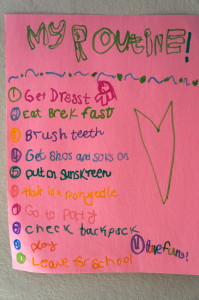
5.) Expect some testing and Encourage, encourage, encourage! – If mornings or evenings have been extra hectic, expect some testing behavior. It’s normal for kids to test the boundaries and limits to see if you really plan on following through with the new plan. Change takes time…stick with it!
Now, with the schedule in place, you can allow the routine chart to be the “boss.” Aim to ask more often than you tell using encouraging statements. For example, “I see you got yourself all dressed, thank you. What’s next in your routine?” Be sure to also acknowledge their cooperation once they complete their tasks. “I really appreciate the way you used your chart to get everything done this morning. We’re on time now! Way to go! Thank you!”
Allowing our kids to be involved in family decisions, while expressing our faith in their capabilities, is how we foster the essential traits of self-discipline, self-worth and self-confidence.
It starts with us! 🙂
Wishing you all the best,
Debbie



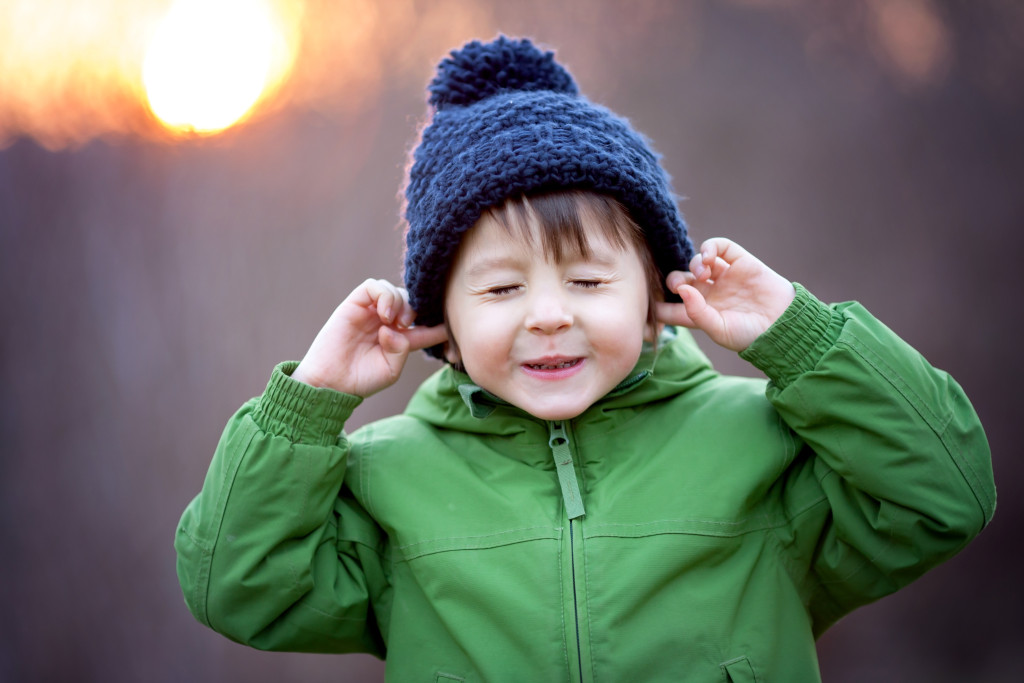
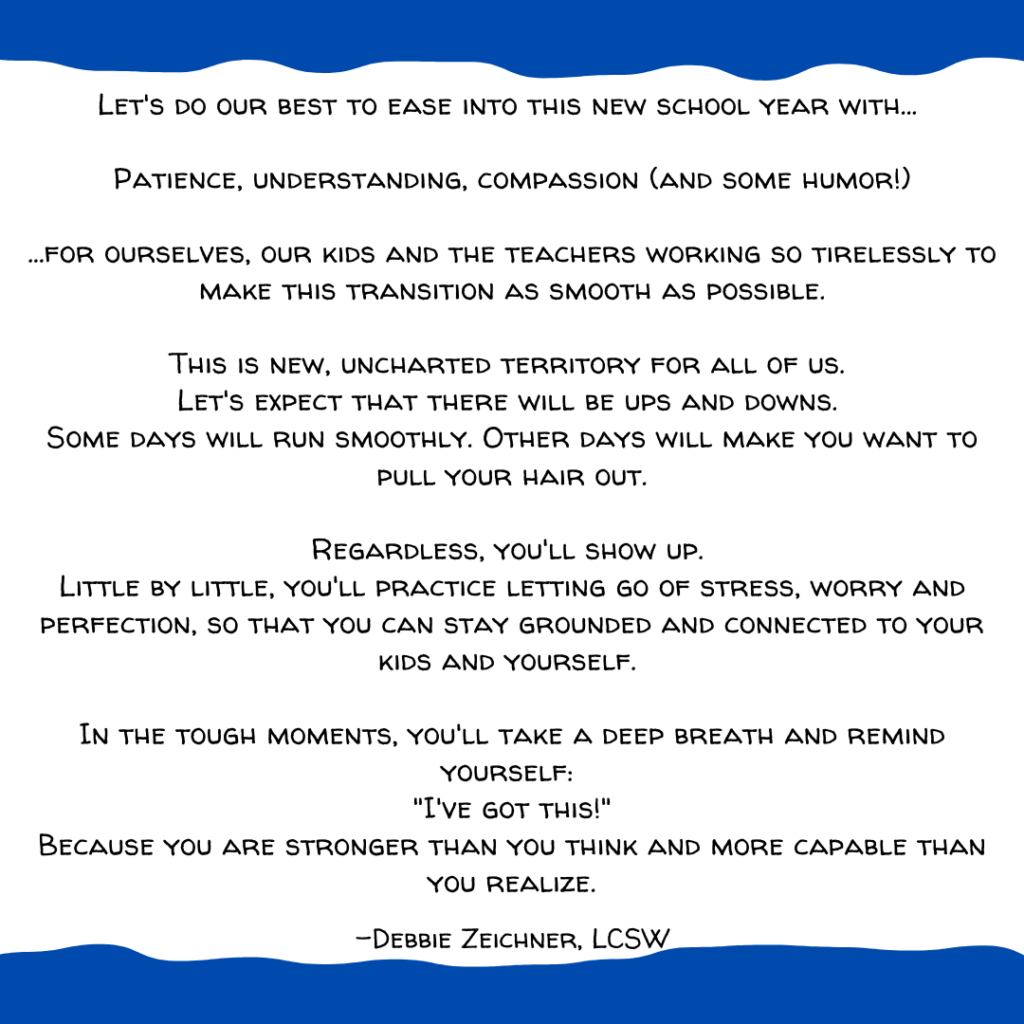
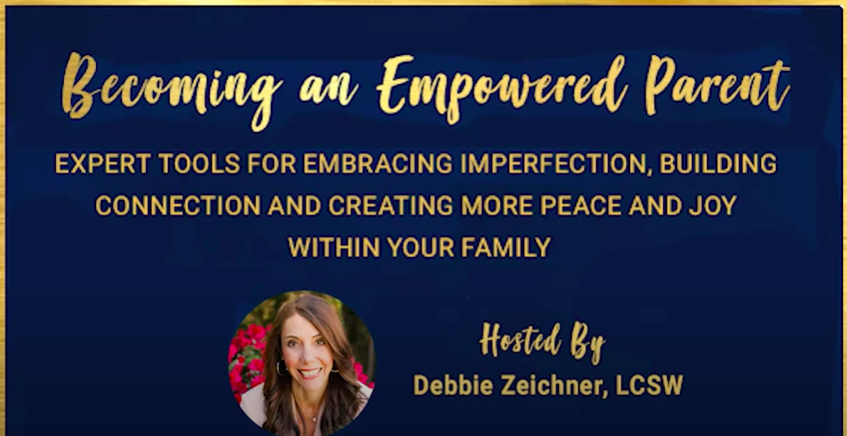
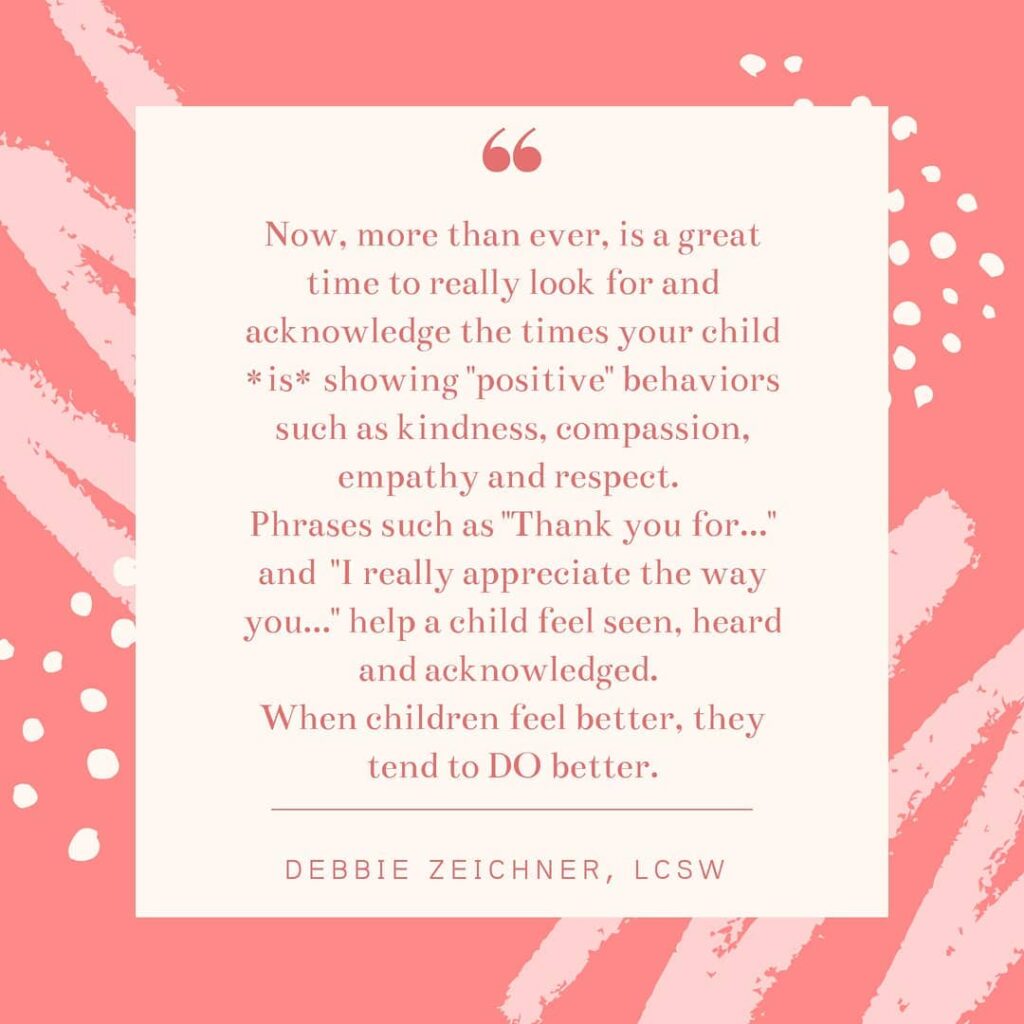
 Bring to mind someone or something that makes you smile or brings you joy. If you’d like, try putting a little smile on your face. What do you notice?
Bring to mind someone or something that makes you smile or brings you joy. If you’d like, try putting a little smile on your face. What do you notice?




